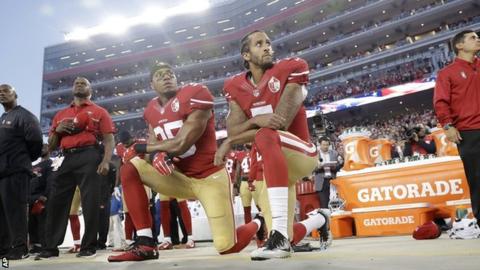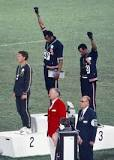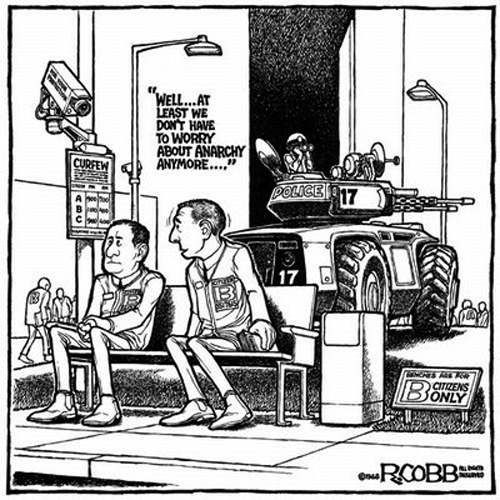“Who wants the job?”
We all know there’s a war going on in the British Labour Party between its elected leader and nearly all his MPs. Not many outside of the party, however, know just how vicious and dirty this has become with claims of anti-semitism and/or a Trotskyite takeover flying out from the right wing on a daily basis. One wonders what they’ll come up with next. At the heart of this struggle is one key slogan of those dissidents, ‘With this leader we’ll never get elected!’ Whether or not that’s true remains to be seen but the question then arises, ‘What do you want it for?’ The experience, for its core constituents, of having a Labour government over the last half century has been mixed at best. Over the last thirty years it’s been indistinguishable from a Conservative one and, when the latter were in power, Labour’s efforts have been equally ineffective. Plenty of people are now saying this country doesn’t need another Labour government that does nothing useful, what we need is a real opposition.
I could go into the history of the Labour Party – beginning as an alliance of trade unionists, socialists and Liberals, through its fight with the Communists, the triumph of 1945 and so on, but I want to look at this question of power. This is the crucial question in all political systems. In a democracy it supposedly rests with ‘the people’ who exercise it in voting for their leaders and their representatives. Any slight examination of the facts shows that it’s not that simple. There’s a whole array of different forces in play – other states’ influences, business interests, often the armed forces or parties within them, professional groups, trade unions, the media and so on. In all this ‘the people’s’ interests may came a long way down the queue. Social-democrat parties, like Labour, have been tangled up in this web since their beginnings. The Communist Party (another example of the abuse of language) thought they could cut through this by ruling in the name of the people, or at least in the name of ‘the workers’. Their utter failure is one reason why we’re in this mess now. It seems that every attempt to make a revolutionary change to a better society goes through the same stages of euphoria, paranoia, terror, repression and finally compromise or collapse. For those who still want to achieve socialism or any kind of democratic world, it’s important to figure out how to avoid that fate. I don’t have any answers but I do have some things to watch out for.
As an anarchist I’ve been reluctant to recognise that we’re a hierarchical species but the evidence seems to be overwhelming. We’re taught from our earliest days to ‘do as you’re told’ and that lesson sinks in deep. Some learn that they have a ‘right’ to be superior and follow that through. I believe that, even as babies, we instinctively know who has the most power in the room. However there’s no reason why such rankings in our societies should be fixed. There are plenty of reasons to think otherwise. One is that we don’t accept them for ever – history is full of examples of revolts by the underdogs and not just those which arose in Europe from the 14th century onwards. There are examples in human history and among our primate cousins, the chimpanzees, showing that leaders can be chosen and rejected by the rest of the group. The problem is: who wants the job?
There are those who become leaders because of their seniority, experience and ability. There are others who have the ambition to be on top – the reasons are several but related. The first, evolutionary, impulse is access to the first choice of mates; the second, and probably derived one, is ego satisfaction – glory/honour/reputation; the third is access to the pick of the goodies – aka wealth. This last is a much later development that did not appear until humans learned how to create surpluses.
The point is that, whatever the system, some people will try to take control. And the likelihood is that, even after a revolution, they’ll be the same kind of people as those seen in the previous regime. This is why the process of social change seems to go through the same sequence. So, while it’s possible to design better political systems than we have, there will never be a perfect one. The USSR had on paper a good constitution and legal code, but that didn’t stop Stalin and his henchmen sending millions of innocent people to suffer and die in the gulag archipelago.
Is there a way to stop power junkies? Who knows? Being aware of this danger would be a start but it would also be useful to know where the power comes from – it comes from us. Power means the ability to do work, both the electricity that makes a lightbulb glow and the muscles that flipped the switch. Whether we actively support the power structure in a social group, or merely passively submit, we’re supplying our power to whoever’s in control. We have the ability to withdraw that supply and even actively use it against the controllers. Of course, there can be costs involved in doing this, but that choice remains. It’s up to you.
RA 15.9.16

 There are many more examples that could be given, even of governments winning or losing elections because of the results of major sporting events and not forgetting the 1969 war between Honduras and El Salvador over a football match! So, please, let’s stop pretending we believe that sport has nothing to do with politics and vice versa. Politics means ‘people’s business’ and sport is definitely one of those businesses.
There are many more examples that could be given, even of governments winning or losing elections because of the results of major sporting events and not forgetting the 1969 war between Honduras and El Salvador over a football match! So, please, let’s stop pretending we believe that sport has nothing to do with politics and vice versa. Politics means ‘people’s business’ and sport is definitely one of those businesses. 